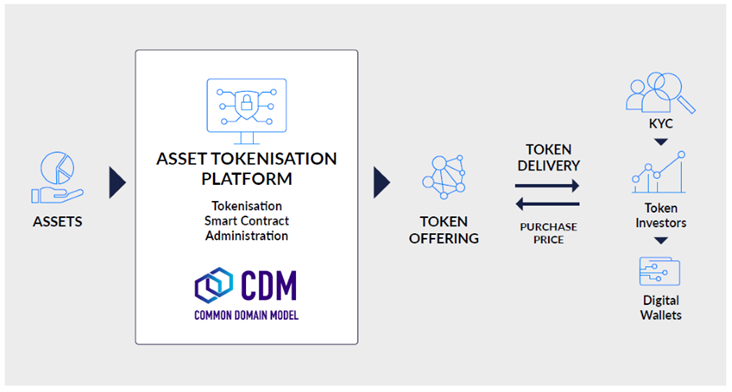About ISLA
Regulation & Policy
Legal Services
Our Events
News & Insights
As settlement cycles shorten, the need for uniform protocols becomes more and more apparent. Firms need to streamline their operations and upgrade their infrastructure and applications to be able to meet regulatory and market settlement requirements.
New and innovative technologies like Distributed Ledger Technology (DLT) and tokenisation are the key to reaching (near) real-time or atomic settlement. Technology can therefore allow institutions to adapt to faster moving markets, through more extensive use of automation and distributed processing.
However, without the standardisation of data and processes, investment in technology and infrastructure can only go so far. To fully realise the enormous potential of distributed processes and data on a digital ledger, participants must have a standardised framework to manage these transactions.
Fully supporting the trade lifecycle, the CDM provides standard logic and definitions for settlement and transfers, not only of traditional assets, but also of digital assets.
If the data and logic embedded in the CDM is tapped by smart contracts then we will achieve standardised processing at the program level, re-moving the possibility of different results from smart contracts that are designed to perform the same action on two different platforms.

Figure 1: Asset Tokenisation using the CDM
Tokenisation is built upon these networks and smart contracts, meaning in commercial terms, tokenisation works on every level.
To maximise benefit from tokenisation, tokenised assets need to seamlessly traverse platforms, and the only way to do that is through the market agreeing and adopting a standard representation of these assets, along with robust legal documentation to support them.
Through its standardised data and functions, the CDM significantly enhances the efficiency of settlement processing, leading to faster transaction execution through automation and reduced discrepancies and improved accuracy across participants.
When combined with technology the CDM can make processes more reliable and facilitate faster and more efficient settlement.
What is Tokenisation?
A token is a representation of an asset or bundle of rights that can be issued, traded, distributed and tracked on a blockchain. There are two main activities that are meant when the term tokenisation is used in securities markets at time of writing:
This article is an excerpt from our ‘CDM: The Road to Adoption’ report – click here to read the full report.